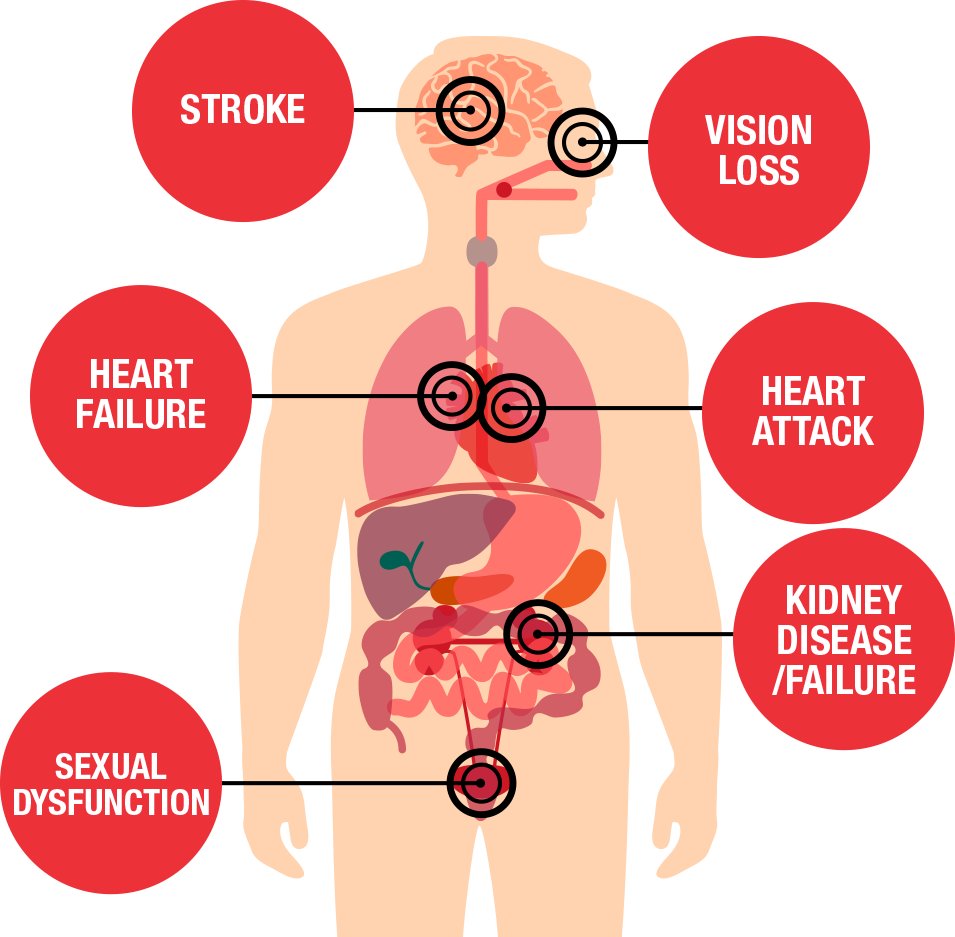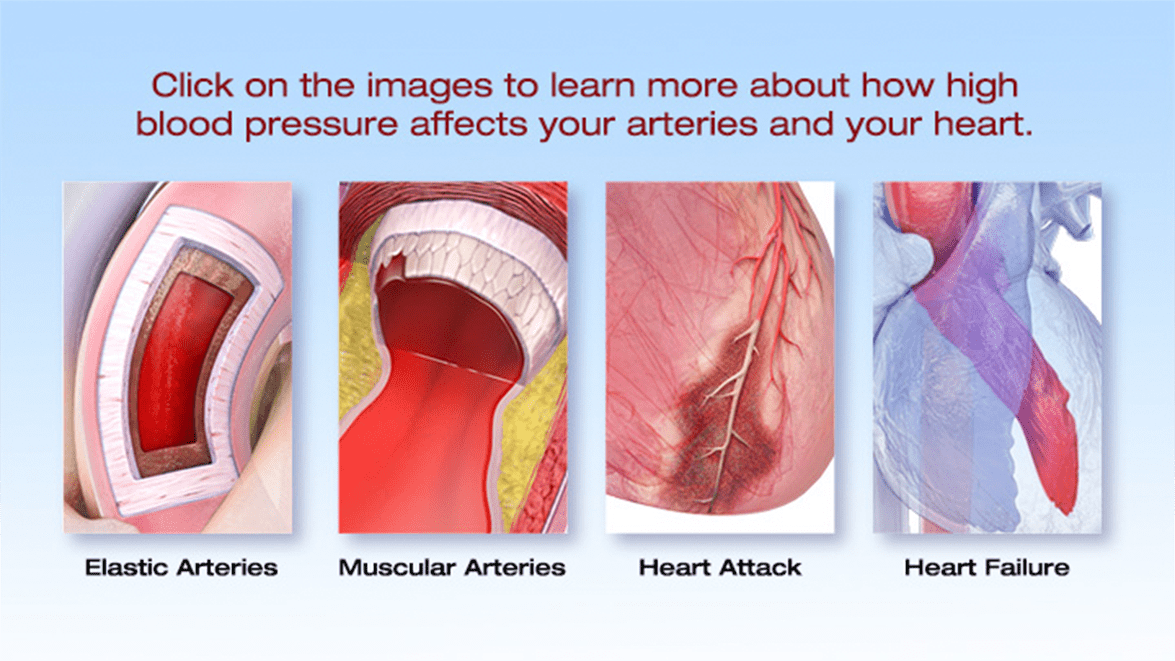Health Threats from High Blood Pressure

High blood pressure threatens your health and quality of life
In most cases, damage done from high blood pressure (HBP or hypertension) occurs over time. Left undetected or uncontrolled, high blood pressure can lead to:
- Heart attack — High blood pressure damages arteries that can become blocked and prevent blood flow to the heart muscle.
- Stroke — High blood pressure can cause blood vessels that supply blood and oxygen to the brain to become blocked or burst.
- Heart failure — The increased workload from high blood pressure can cause the heart to enlarge and fail to supply blood to the body.
- Kidney disease or failure — High blood pressure can damage the arteries around the kidneys and interfere with their ability to filter blood effectively.
- Vision loss — High blood pressure can strain or damage blood vessels in the eyes.
- Sexual dysfunction — High blood pressure can lead to erectile dysfunction in men and may contribute to lower libido in women.
- Angina — Over time, high blood pressure can lead to heart disease including microvascular disease (MVD). Angina, or chest pain, is a common symptom.
- Peripheral artery disease (PAD) — Atherosclerosis caused by high blood pressure can lead to narrowed arteries in the legs, arms, stomach and head, causing pain or fatigue.
Download the consequences of HBP infographic: English (PDF) | Spanish (PDF) | Traditional Chinese (PDF)
Can hypertension cause other problems?
When your blood pressure is high for too long, it damages your blood vessels – and LDL (bad) cholesterol begins to accumulate along tears in your artery walls. This leads to narrowed arteries and increases the workload of your circulatory system while decreasing its efficiency.
As a result, high blood pressure puts you at greater risk for developing life-changing and life-threating conditions.
Your best protection is knowledge, management and prevention
- Know your numbers. The best way to know if you have high blood pressure is to have your blood pressure checked.
- Understand the symptoms and risks. Learn what factors could make you more likely to develop high blood pressure and put you at risk for serious medical problems.
- Make changes that matter. Take steps to reduce your risk and manage your blood pressure. Make heart-healthy lifestyle changes, take your medication as prescribed and work in partnership with your health care professionals.
High blood pressure and hypertensive crisis
If your blood pressure readings exceed 180/120 mm Hg and you have any symptoms such as headache, chest pain, nausea/vomiting or dizziness, call 911 immediately. If you don’t have any symptoms, wait five minutes and then test your blood pressure again.
Also contact your health care professional immediately if your readings are still unusually high and you aren’t experiencing any other symptoms of target organ damage such as chest pain, shortness of breath, back pain, numbness/weakness, change in vision or difficulty speaking. You could be experiencing a hypertensive crisis.
High blood pressure and metabolic syndrome (insulin resistance syndrome)
Metabolic syndrome is a cluster of risk factors, including high blood pressure, that raises the risk of heart disease, diabetes, stroke and other health problems. It's diagnosed when you have any three of these risk factors:
- High blood glucose (sugar)
- Low levels of HDL (good) cholesterol in the blood
- High levels of triglycerides in the blood
- Large waist circumference or “apple-shaped” body
- High blood pressure


